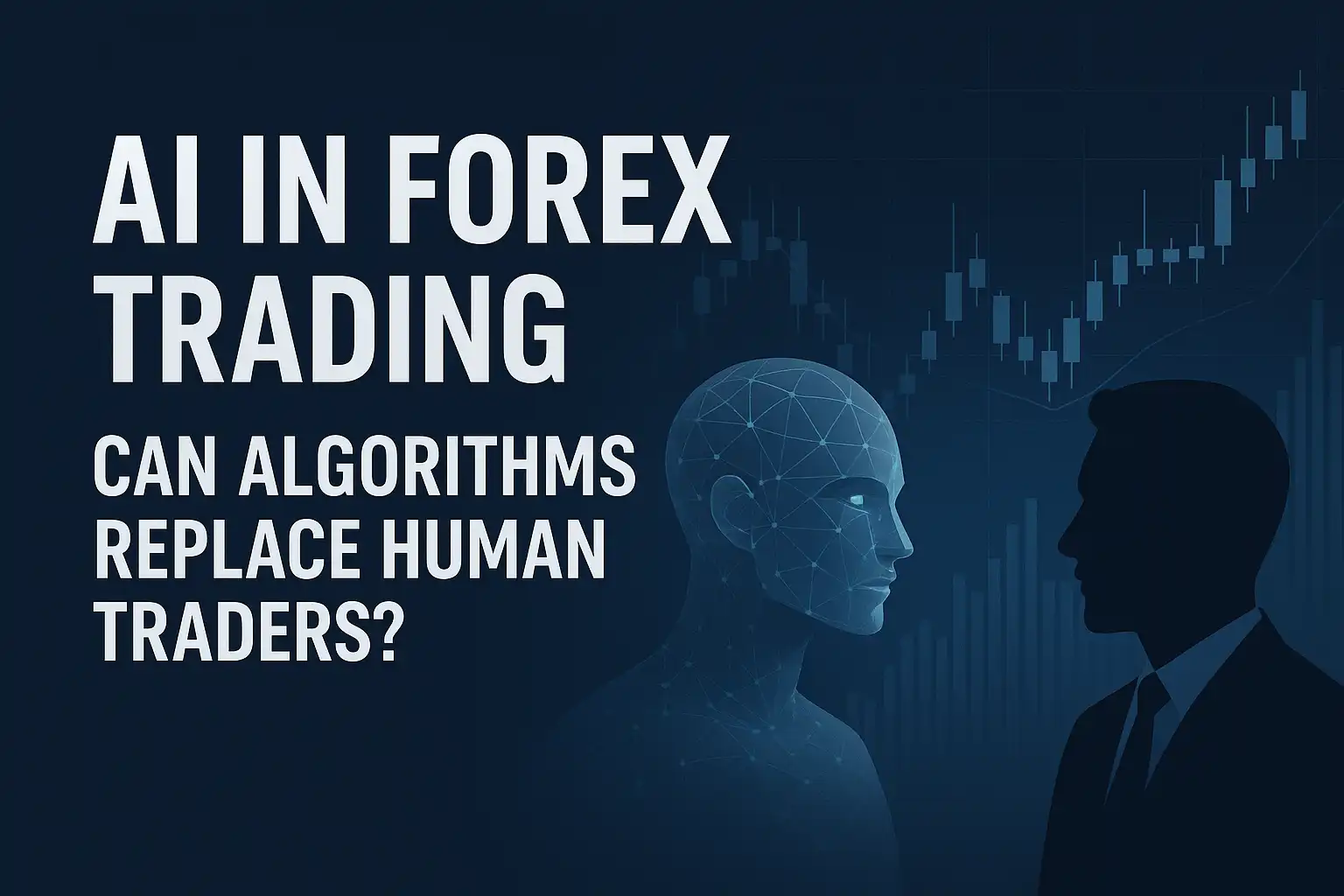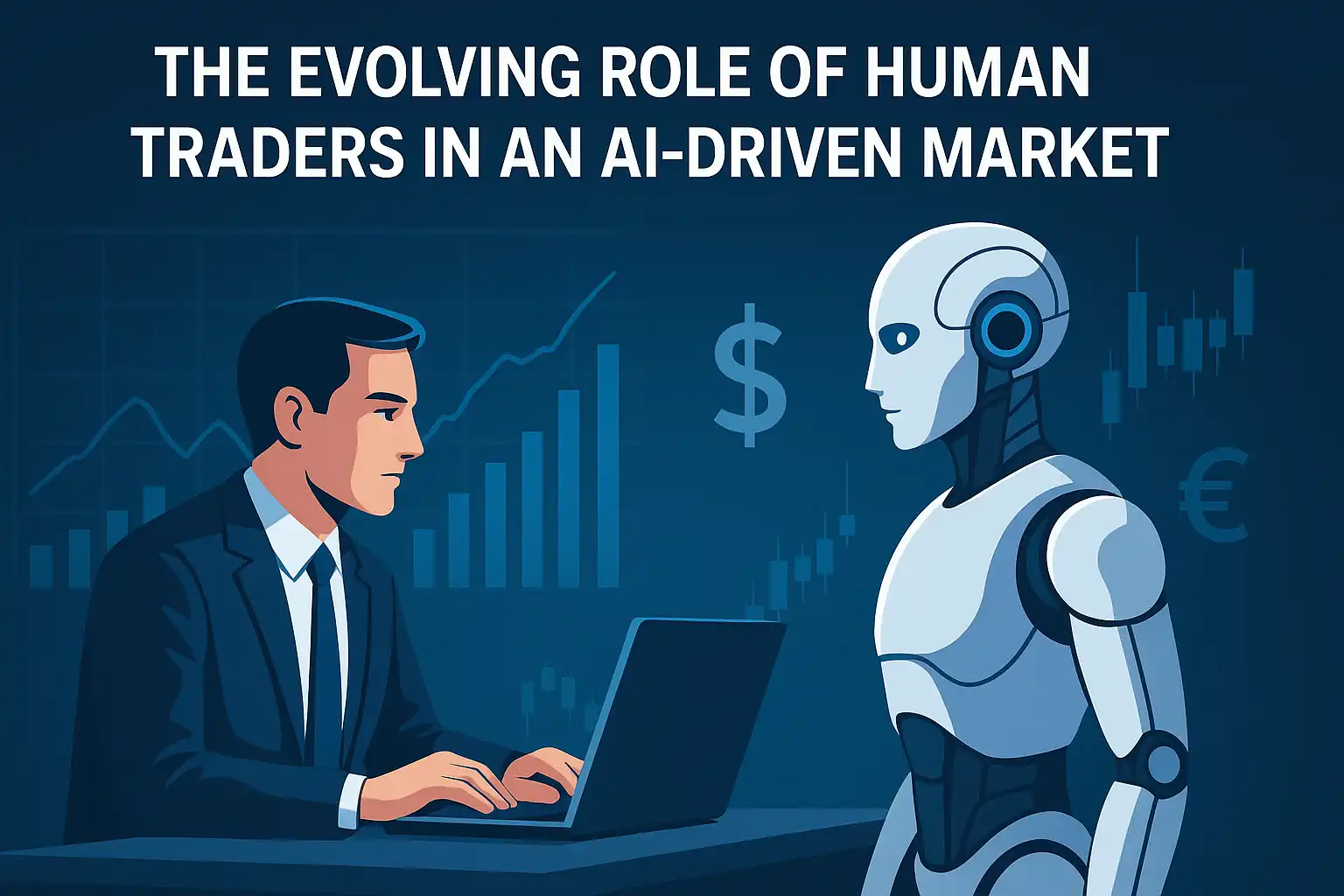Crash-Proof EA Templates You Can Use in 2026
Automated trading carries risks, but crash-proof EA templates protect capital and limit losses. These templates...

In recent years, the integration of Artificial Intelligence (AI) into various industries has been nothing short of revolutionary, and the foreign exchange (forex) market is no exception. The allure of AI in forex trading lies in its potential to process vast amounts of data, identify complex patterns, and execute trades at speeds and efficiencies far beyond human capabilities. This has led to a critical question: Can AI and sophisticated algorithms truly replace human traders? While the debate rages on, it’s clear that AI is reshaping the landscape of forex trading, offering both unprecedented opportunities and unique challenges. This article delves into the current state of AI in forex, exploring its applications, advantages, limitations, and the evolving role of human traders in an increasingly automated market. We will examine how AI-powered tools are being utilized, from advanced Expert Advisors to sophisticated algorithmic trading systems, and discuss whether these technological advancements signify the end of human involvement or the dawn of a new era of collaborative trading. Understanding the nuances of AI’s impact is crucial for any trader looking to stay competitive in today’s fast-paced forex environment. For those looking to get started with automated trading, our range of Free Products can provide a valuable entry point.
AI brings a multitude of advantages to the forex market, primarily stemming from its ability to overcome human limitations. One of the most significant benefits is speed and efficiency. AI algorithms can analyze market data, identify trading opportunities, and execute trades in milliseconds, a speed impossible for human traders to match. This is particularly crucial in high-frequency trading (HFT), where even a fraction of a second can mean the difference between profit and loss. Furthermore, AI systems are immune to emotional biases that often plague human decision-making. Fear, greed, and overconfidence can lead to irrational trading choices, but AI operates purely on logic and predefined parameters, ensuring consistent execution of strategies. This emotional detachment contributes to more disciplined trading and can significantly reduce losses due to impulsive actions.
Another key advantage is data processing capability. The forex market generates an enormous volume of data every second, including price movements, economic indicators, news events, and social sentiment. AI, particularly machine learning algorithms, can process and analyze this vast dataset in real-time, identifying complex patterns and correlations that would be imperceptible to the human eye. This allows for more accurate predictions and more robust trading strategies. For traders interested in leveraging data analysis, our Source Code products can provide foundational tools. AI can also backtest strategies with unparalleled speed and accuracy, simulating how a strategy would have performed over historical data. This allows traders to refine and optimize their approaches before deploying them in live markets. Our Meta Trade 5 tools offer advanced backtesting capabilities. Moreover, AI-powered systems can operate 24/5, continuously monitoring global markets without fatigue, ensuring that no trading opportunity is missed, regardless of time zones. This constant vigilance is a significant edge over human traders who require rest and breaks. For those looking to automate their trading, our range of Expert Advisors are designed to capitalize on these advantages. The ability of AI to adapt and learn from new data also means that these systems can continuously improve their performance over time, making them increasingly sophisticated and effective. This adaptive learning is a core component of advanced AI trading systems, allowing them to evolve with changing market conditions. For a deeper dive into how automated systems can enhance your trading, consider reading our blog post on EA Fails? Here’s How to Adjust Your Strategy.
Despite its numerous advantages, AI in forex trading is not without its limitations and challenges. One of the primary concerns is the lack of true understanding and intuition. While AI can process vast amounts of data and identify patterns, it does not possess the human capacity for intuition, critical thinking, or understanding the underlying socio-political and economic narratives that often drive market sentiment. Unexpected geopolitical events, sudden policy changes, or unforeseen natural disasters can introduce market anomalies that AI models, trained on historical data, may struggle to interpret or react to effectively. This is where human traders, with their ability to contextualize information and make qualitative judgments, still hold an edge. For those interested in understanding market dynamics beyond algorithms, our Forex Courses can provide valuable insights.
Another significant challenge is data dependency and overfitting. AI models are only as good as the data they are trained on. If the data is biased, incomplete, or does not accurately represent future market conditions, the AI’s performance can suffer. Overfitting, where a model performs exceptionally well on historical data but poorly on new, unseen data, is a common problem in algorithmic trading. This can lead to substantial losses in live trading environments. Rigorous backtesting and forward-testing are crucial to mitigate this risk. Furthermore, the complexity and ‘black box’ nature of some advanced AI models can make it difficult for traders to understand why a particular decision was made. This lack of transparency can be a barrier to trust and effective risk management. Traders need to be able to explain and justify their trading decisions, which can be challenging with highly complex AI systems. Our Source Code products can help demystify some of these complexities.
Moreover, AI systems are vulnerable to technical failures and cyber threats. A glitch in the algorithm, a server outage, or a cyberattack could lead to significant financial losses. The reliance on technology means that robust security measures and contingency plans are essential. The cost of developing, maintaining, and continuously updating sophisticated AI systems can also be substantial, making them inaccessible to individual traders or smaller firms. While affordable tools exist, truly cutting-edge AI often requires significant investment. For those seeking cost-effective solutions, our 5 Dollar Forex Tools and 9 Dollar Forex Tools offer accessible entry points. Finally, the regulatory landscape for AI in financial markets is still evolving. As AI becomes more prevalent, regulators are likely to introduce stricter rules and oversight, which could impact the development and deployment of AI trading systems. Understanding these limitations is vital for a balanced perspective on the role of AI in forex trading. For more on managing trading risks, refer to our blog post on How to Create a Forex Trading Plan That Works.

Given the rise of AI in forex trading, the role of human traders is undoubtedly evolving, but it is far from becoming obsolete. Instead, AI is transforming human traders from manual executors into strategic overseers, analysts, and developers. Human traders are now increasingly focused on tasks that require uniquely human skills, such as strategy development and refinement. While AI can execute strategies, humans are still responsible for designing them, setting the parameters, and adapting them to changing market conditions. This involves a deep understanding of market psychology, macroeconomic factors, and geopolitical events that AI may not fully grasp. Our Forex Courses can help traders develop these essential strategic skills.
Another crucial role for human traders is risk management and oversight. Even the most advanced AI systems require human supervision to prevent catastrophic errors or unintended consequences. Human traders are responsible for monitoring AI performance, identifying anomalies, and intervening when necessary. They also set the overall risk appetite and ensure that AI systems operate within acceptable boundaries. For those interested in advanced risk management, our VIP Room offers exclusive insights. Furthermore, human traders are essential for interpreting qualitative data and market sentiment. News events, central bank announcements, and political developments can significantly impact currency markets, and while AI can process news feeds, understanding the nuances and implications often requires human interpretation. This qualitative analysis complements the quantitative analysis performed by AI, leading to more holistic trading decisions. Our Forex Blog often discusses the impact of news on trading.
Human traders also play a vital role in innovation and adaptation. As markets evolve, new strategies and approaches are needed. Human creativity and problem-solving abilities are indispensable for developing novel AI algorithms and adapting existing ones to new challenges. This includes the development of new Expert Advisors and custom indicators that can give traders an edge. The collaboration between human intelligence and artificial intelligence is likely to be the most powerful model for future forex trading. AI handles the heavy lifting of data processing and execution, freeing up human traders to focus on higher-level strategic thinking, creativity, and risk management. This synergy allows traders to leverage the strengths of both, leading to more efficient, disciplined, and potentially more profitable trading. For those interested in specific trading platforms, our Ninja Trader and MT 5 Trader products offer tools that can be integrated with AI solutions.
The question of whether AI can replace human traders in the forex market is not a simple yes or no. While AI and algorithms possess undeniable advantages in speed, data processing, and emotional detachment, they currently lack the intuition, critical thinking, and adaptability to unforeseen circumstances that human traders bring to the table. Instead of a replacement, the future of forex trading appears to be a symbiotic relationship, where AI serves as a powerful tool that augments human capabilities. AI can handle the repetitive, data-intensive tasks, allowing human traders to focus on strategy development, risk management, qualitative analysis, and innovation. This collaborative approach leverages the strengths of both human and artificial intelligence, leading to a more efficient, robust, and potentially more profitable trading ecosystem. As AI technology continues to advance, the tools available to traders will become even more sophisticated. Staying informed and continuously learning about these advancements is crucial for any trader. Resources like Investopedia [1], BabyPips [2], Reuters [3], and Bloomberg [4] provide invaluable insights into market dynamics and technological trends. Ultimately, the most successful traders in the AI era will likely be those who master the art of working alongside intelligent algorithms, harnessing their power to navigate the complexities of the forex market with greater precision and insight. Explore our full range of products to find the tools that can help you thrive in this evolving landscape.
Jack Henry
30/08/2025
Automated trading carries risks, but crash-proof EA templates protect capital and limit losses. These templates...
Understanding major and minor currency pairs is the first step in forex trading. Understanding major...